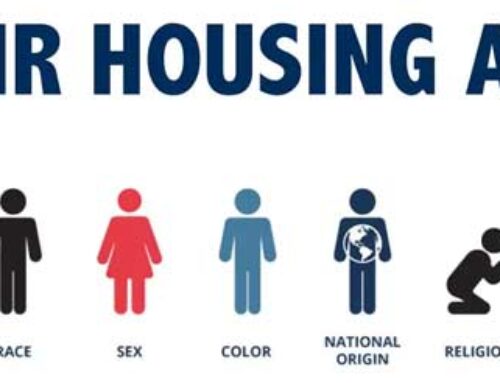
It’s heeeere: tax season.
This year your taxes are due on May 17, unlike last year when the coronavirus pandemic prompted the Internal Revenue Service to extend the deadline to July 15. (And let’s remember that tax day is usually April 15, so this is good news.) The deadline might seem like plenty of time with six weeks to go, but that filing window seems to come up fast every year.
We get it. Maybe you’re a procrastinator. Or maybe you’re a homeowner who, rather than taking the easy-peasy standard deduction, generally tries to save a bundle by itemizing your deductions instead.
Whatever your reason, if you’ve put off organizing your taxes, don’t panic! You still have options.
Here are three last-minute tax tips for homeowners that could save you plenty of money, headaches, and more.
Tip No. 1: Grab Form 1098
Form 1098, or the Mortgage Interest Statement, is sort of like your home’s W-2: a one-stop shop for your possibly two biggest tax breaks.
- Mortgage interest: “The biggest real estate tax deduction for most people will be the interest on their home loan,” according to Patrick O’Connor of O’Connor and Associates. Single people can deduct the full interest up to $500,000; for married couples filing jointly, the limit is $1 million if you purchased a house before Dec. 15, 2017. If you bought a home after that date, you will be allowed to deduct the interest on no more than $750,000 of acquisition debt—that’s a loan used to buy, build, or improve a main or secondary home. (Here’s more on how your mortgage interest deduction can help you save on taxes.)
- Property taxes: This is the second-biggest deduction for most homeowners. Just remember the total amount you can deduct is $10,000, even if you pay way more—and that includes state and local income tax, property tax, and sales tax. (Here’s how to calculate your property taxes.)
You might be eligible for other real estate–related deductions and tax credits, but these are the biggies for most people. If you’re down to the wire on filing, you might just deduct these two and call it a day.
Just remember to make it worth your while. These numbers need to add up to more than the current standard deduction, which jumped in tax year 2020 to $12,400 for individuals, $18,650 for heads of household, and $24,800 for married couples filing jointly.
Tip No. 2: File an extension
If you still need more time to get your taxes together, it’s totally simple and penalty-free to file for an extension until Oct. 15. But don’t get too excited; the IRS still requires you to pay your estimated tax bill by May 17, or else you’ll pay interest on what you owe down the road.
The IRS makes it easy to file for an extension, either online or by mail. On the form, just estimate how much tax you owe. If you’re filing an extension because you need more time to figure out your itemized deductions, one easy shortcut is to just take the standard deduction now—or the same amount you claimed last year.
All in all, it’s better to overestimate what you owe, because then you won’t pay any interest. Once you file for real, anything you’ve overpaid will come back to you.
But what if you need an extension because you can’t pay your tax bill? It’s still better to file for an extension with fuzzy numbers than to not file at all.
The IRS has payment plans that can help if you are short on cash. Just file something—blowing the deadline entirely will open you up to penalties as well as interest on your bill. And maybe an audit, too.
Tip No. 3: Hire some help
If you make less than $69,000 a year, you qualify to use free tax prep software from the IRS. Even if you make more than that, there are lots of free or low-cost online tax prep options that should work for anyone with relatively straightforward taxes.
Of course, another option is to find yourself a good accountant.
If paying for a tax preparer sounds extravagant, keep in mind that, according to the U.S. Tax Center, the average cost of getting your taxes done is only $225. This, generally speaking, is money well-spent.
A good accountant can actually save you money by spotting deductions you might not have found on your own, and helping you plan to minimize the next year’s taxes. All in all, that may add up to the best few hundred bucks you’ve ever spent!
Another timesaver: Rather than snail-mailing your accountant your tax forms, snap pictures of them on your smartphone; some apps like CamScanner can do so with scanner-style quality. Accountants don’t need the originals to file.
For next year, remember to prepare
OK, so this year you waited too long and stressed yourself out. If you don’t want a repeat ordeal next year, now is also the time to mend your ways and start tax prep early. Nobody wants to be thinking about taxes all year, of course. But as a homeowner, you can do some things to be better prepared.
So before you do any home maintenance, upgrades, or renovations, research whether there are any tax deductions you could be eligible for.
Start now, and you’ll be sitting pretty to collect on all the various tax perks that come with owning a home rather than pulling out your hair at the last minute.
For more smart financial news and advice, head over to MarketWatch.
Source- https://www.realtor.com/advice/finance/last-minute-tax-tips-for-homeowners/
Image- kroach/iStock






